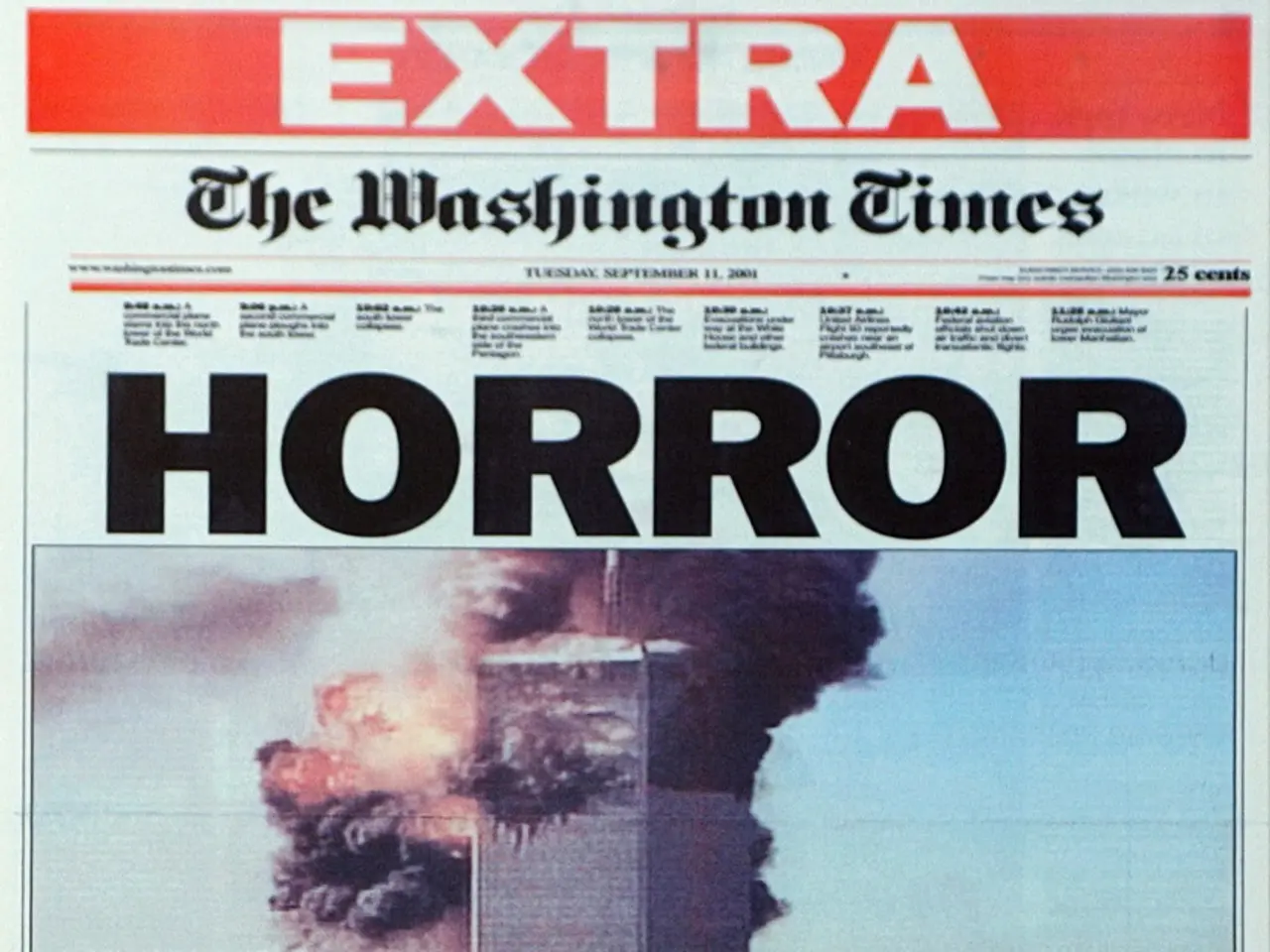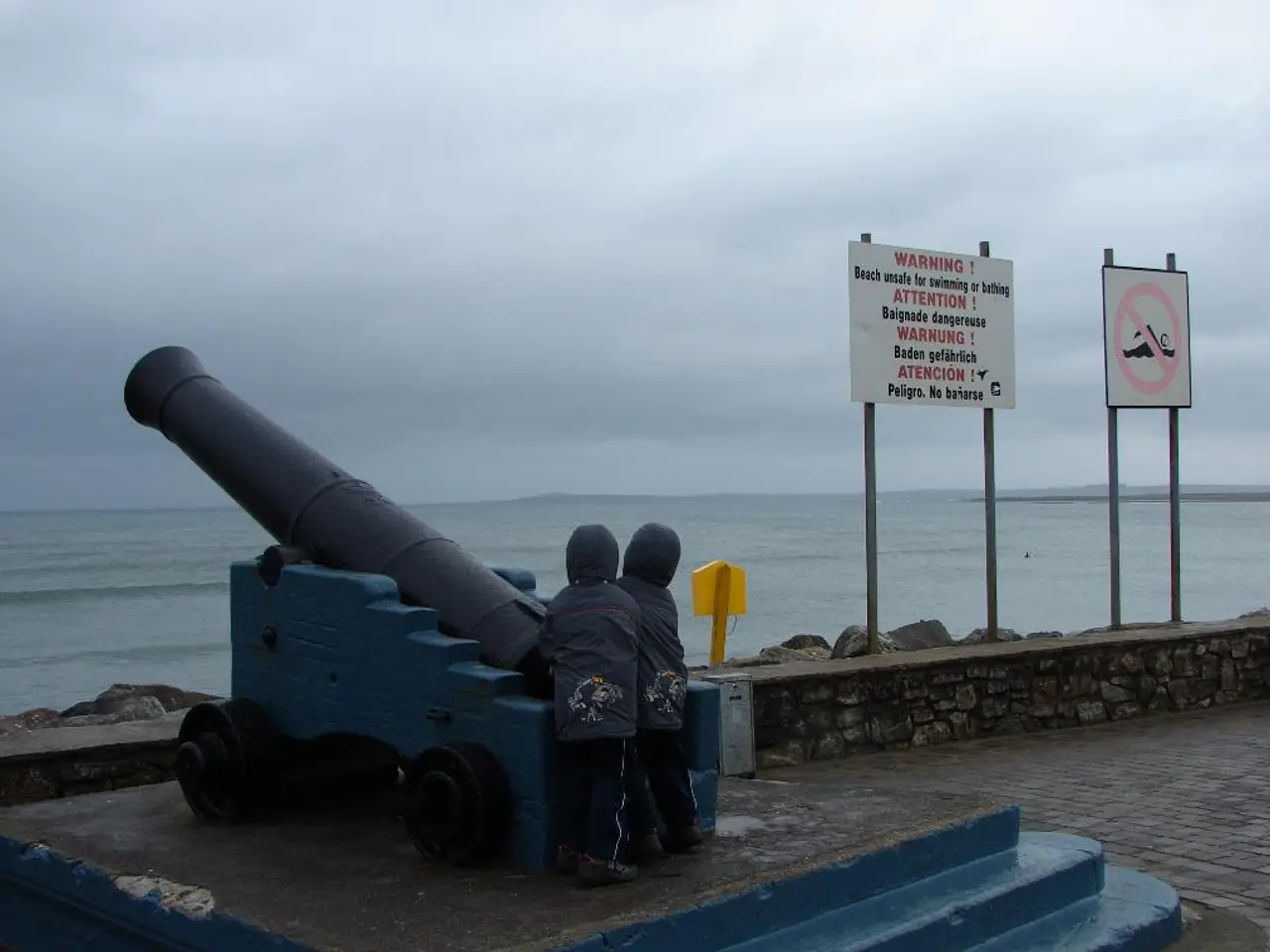Bolivia on the Brink: President Arce's Struggle to Avoid State Bankruptcy
Bolivia's President Arce issues grave financial distress warning, indicating potential bankruptcy for the state. - Bolivia's Head of State Issues Alarm over Financial Collapse
Email this Post 📨
Bolivia's foreign debt currently stands at a staggering $13.3 billion (€11.6 billion), representing over 37% of its gross national income. Major creditors include the Inter-American Development Bank, the South American Development Bank CAF, the World Bank, and China.
President Luis Arce, leading the country since 2020, paints a grim picture, declaring, "We're in the thick of it, folks!" Normally, fresh loans would counterbalance debt repayments, but Arce is currently fighting an uphill battle to secure these much-needed funds.
Arce's plea to the Bolivian parliament for $1.8 billion (€1.6 billion) in emergency loans from international institutions has so far fallen on deaf ears. By December, the government will require approximately $2.6 billion (€2.3 billion) for fuel imports and outstanding debt payments.
The economic crisis brewing in Bolivia is reflected in a severe shortage of foreign currency, fuel, and basic foodstuffs. Inflation reached a record high of 18.4% year-on-year in May, the highest level in almost 20 years, and the Bolivian currency continues to plummet.
Criticism toward Arce, a member of the Movement for Socialism (MAS) party, remains persistent, despite his announcement that he will not run for president in the upcoming August election. Unfortunately, his approval ratings have sunk to a dismal nine percent - one of the lowest in South America.
Arce, State Bankruptcy, Bolivia, Economic Crisis, World Bank, La Paz, AFP, CAF, China
Insights:
The crisis facing Bolivia is not a fleeting problem, but rather the result of past policy choices and recent shocks. Bolivia's reliance on natural gas exports, coupled with a decline in production, has led to a shortfall in export earnings and government income, undermining fiscal stability. Moreover, persistent fiscal overspending and tight external financing conditions have inflated the public debt to almost 95 percent of the country's GDP. The government's incompatible exchange rate policy, along with financial instability and political unrest, have exacerbated the challenges facing Bolivia.
President Arce's efforts to secure international loans and avert a potential debt default have been met with resistance in the Bolivian parliament and social unrest. To overcome this crisis, the government must secure parliamentary consent to access new foreign financing, implement structural reforms, and achieve political stability to restore economic confidence.
Reboot:
Bolivia teeters on the edge of bankruptcy as President Arce grapples with a mountain of foreign debt. Tension mounts as the country's parliament has balked at granting emergency loans. To keep the country from defaulting on loans and staving off a meltdown, Arce must find a way to secure funds and address the underlying issues that contributed to the crisis.
Rewrites:
Long Paragraph to Multiple Shorter Paragraphs:
- Bolivia's foreign debt stands at a daunting $13.3 billion, accounting for over 37% of its gross national income.
- The main creditors include the Inter-American Development Bank, South American Development Bank CAF, World Bank, and China.
- President Arce laments the nation's losing battle as new loans are desperately needed to replace debt repayments.
- Arce's plea for $1.8 billion in emergency loans from international institutions has yet to be granted by the Bolivian parliament.
- A looming crisis awaits by December, as $2.6 billion will be required for fuel imports and pending debt payments.
Sentence Structure:
- Bolivia faces an unprecedented economic crisis, treading the thin line between state bankruptcy and debt default.
- Key creditors include the Inter-American Development Bank, the South American Development Bank CAF, the World Bank, and China.
- The President's struggle to secure new loans is hampered by resistance in the Bolivian parliament.
- By December, around $2.6 billion will be necessary for fuel imports and outstanding debt payments.
- Critics continue to question Arce's leadership, as approval ratings dwindle to just 9%.
- Amidst Bolivia's struggle to avoid state bankruptcy, President Arce confronts persistent issues in securing necessary international loans, with criticism mounting against his leadership.
- To alleviate the impending crisis, Arce needs to gain parliamentary consent for emergency loans, implement structural reforms, and work towards political stability, in order to regain economic confidence.






